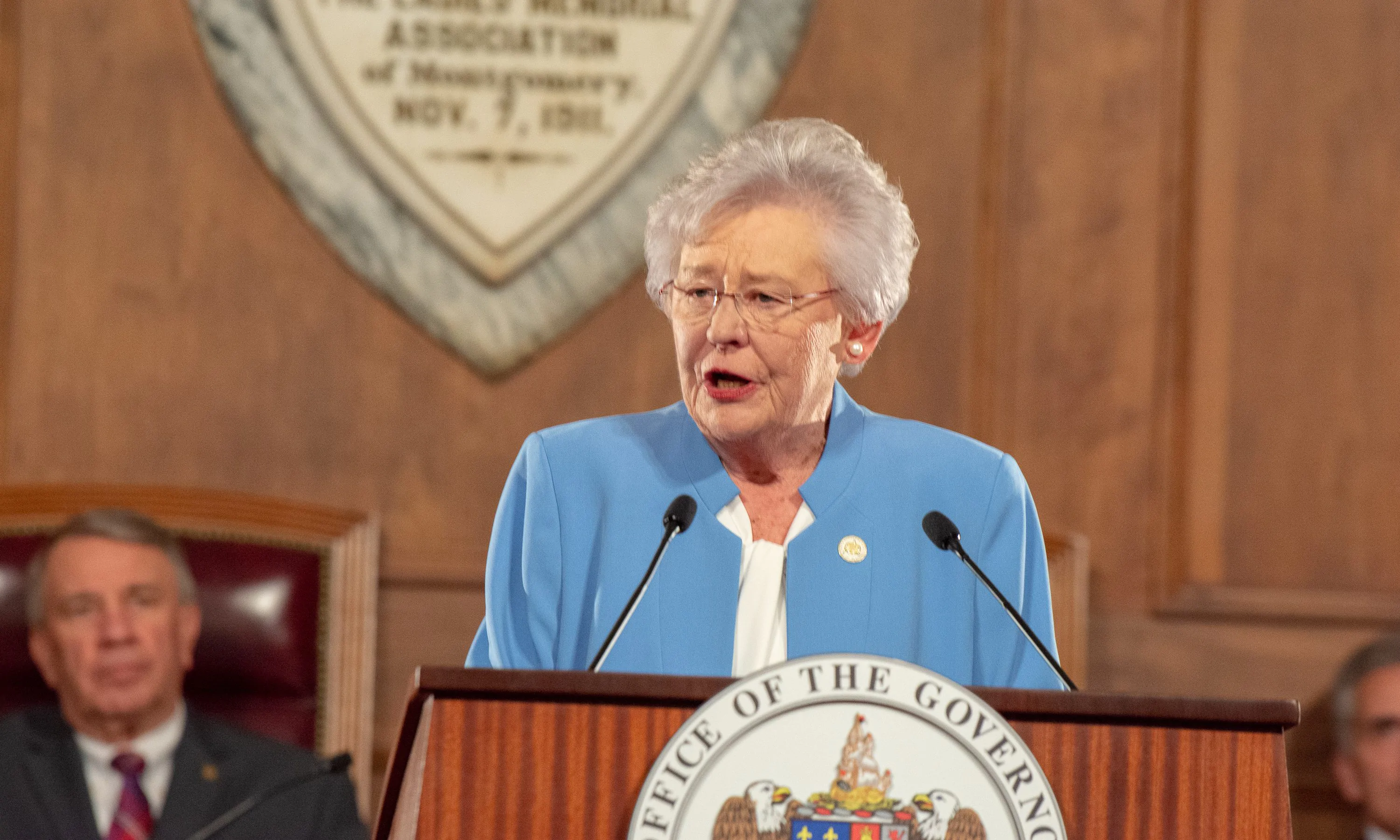Gov. Kay Ivey on Tuesday said there are no plans for a statewide shelter-in-place order due to the COVID-19 pandemic.
“We have seen other states in the country doing that, as well as other countries, but however ya’ll. We are not California. We are not New York. We aren’t even Louisiana,” Ivey said on a conference call Monday. “My priority is to keep the Alabama economy going as much as possible, while we take extraordinary measures to keep everyone healthy and safe.”
The Birmingham City Council on Monday approved a shelter-in-place order to help stem the tide of new COVID-19 cases in the city. The order bans all non-essential travel. Residents can still go to their essential job, leave home for things such as groceries, gas, medicine, health care or food, and for outdoor exercise.
In a press conference Tuesday morning, Birmingham Mayor Randall Woodfin said 45 people who tested positive for the virus are hospitalized at UAB Medical Center in Birmingham, dozens more are under observation and at least 18 are on ventilators.
There were 242 confirmed COVID-19 cases across Alabama on Monday afternoon, although state health officials have said testing remains low in many parts of the state, so the actual spread of the virus is hard to know. The number of known new cases in Alabama has been doubling about every three days.
All Alabamians are under a statewide order that prohibits gatherings of 25 or more people, or any gathering in which people cannot keep 6 feet of distance apart from one another, but the ban doesn’t apply to workplaces.
Ivey said that she knows small businesses are “feeling the pinch” and may feel hopeless when it’s hard to see the end in sight, “but I want to echo the president who today said, quote, ‘We have to get back to work.’ We must do everything we can to keep businesses open. And if they are closed, get them back up as soon as possible.”
President Donald Trump in a press briefing Monday suggested that in a matter of “weeks” and not “months” he planned to ease federal guidelines on social distancing, which are at the heart of the government’s 15-day “slow the spread” plan.
“We can do both things,” Trump said several times during Monday’s press conference when asked if the government should focus on protecting U.S. lives and health or the economy.
Trump’s statements caused concern from health care experts and a few members of his own party, who say easing the guidelines would cause the virus to spread more quickly.
Sen. Lindsey Graham, R- South Carolina, in a tweet Monday said doing so cost lives.
“Try running an economy with major hospitals overflowing, doctors and nurses forced to stop treating some because they can’t help all, and every moment of gut-wrenching medical chaos being played out in our living rooms, on TV, on social media, and shown all around the world,” Graham said in the tweet.
Asked a similar question on Tuesday, whether the state government should be focused more on stopping the spread and public health, or the economy, Ivey echoed Trump, and said both.
“The safety and well-being of Alabamians are paramount. However, I agree with President Trump, who thinks that a healthy and vital economy is just as essential to our quality of life,” Ivey said. “Manufacturers and business owners are producing the medicines, the protective health equipment and the food we need. It’s a balance and we’ve had to strike the appropriate balance as we move forward and as to appreciate the public being patient as you work through this.”
Asked if the state was considering a stimulus package similar to what the federal government is working on, Ivey again discussed getting Alabama’s economy running without barriers.
“In the past decade, we have made it a priority to not spend more than the state has collected, so the answer to this question is dependent on the economy and the economic forecasts, but there again, it’s about keeping Alabama businesses open and running,” Ivey said. “And if enact a shelter-in-place it will further impact our economy. These are things we’re all weighing out. We certainly do not have plans for shelter in place.”
Georgia Gov. Brian Kemp on Monday issued a stay-in-place order for “at-risk” groups, which include those living in long-term care facilities, those with some chronic illnesses, people who tested positive for the virus or were exposed to someone who has it.
Atlanta’s mayor on Monday signed a 14-day stay-at-home order for all city residents.
Ivey later in the Monday conference call cautioned Alabamians from traveling across state lines to visit family or friends, which could put them and others at risk of contracting the virus.
“We want to keep our economy moving for sure, but that means we have to take extra precautions and doing so,” Ivey said.
Alabama’s State Health Officer Dr. Scott Harris was asked during Monday’s conference call whether he agrees with Trump’s statement Monday that the President thinks it will be a matter of weeks, not months before decisions are made to loosen restrictions on public life, Harris said he’s not yet sure.
“In China, for example, they’ve just begun to see improvement in the past week after something that probably appeared in December, so there’s so much unknown right now that it’s just very challenging to say,” Harris said. “But it certainly could be weeks or months, and we’ll know a little bit more when we see our state develops in the next couple of weeks. I think.”
Asked if the state was doing enough to keep people safe when it comes to closures, Harris couldn’t say.
“I certainly am not sure if we’re doing enough or if we’re doing too much when it comes to this response, because it’s just very difficult to look into the future and know what we’re going to be seeing in a few weeks,” Harris said.
“We’re certainly trying to make the best decision we can with the data we have available, and it’s possible we’ll end up looking like we didn’t do enough or it’s possible we’ll end up looking like we overreacted. And at this point, we’re doing the best we can with the information we have,” Harris said.
What he and other state officials now have is an incomplete look at the spread of COVID-19 throughout the state, due to what Harris and other state health officials have said is a deficiency in testing in many areas statewide, largely due to the state’s struggle to source enough testing supplies and personal protective equipment for staff.


















































